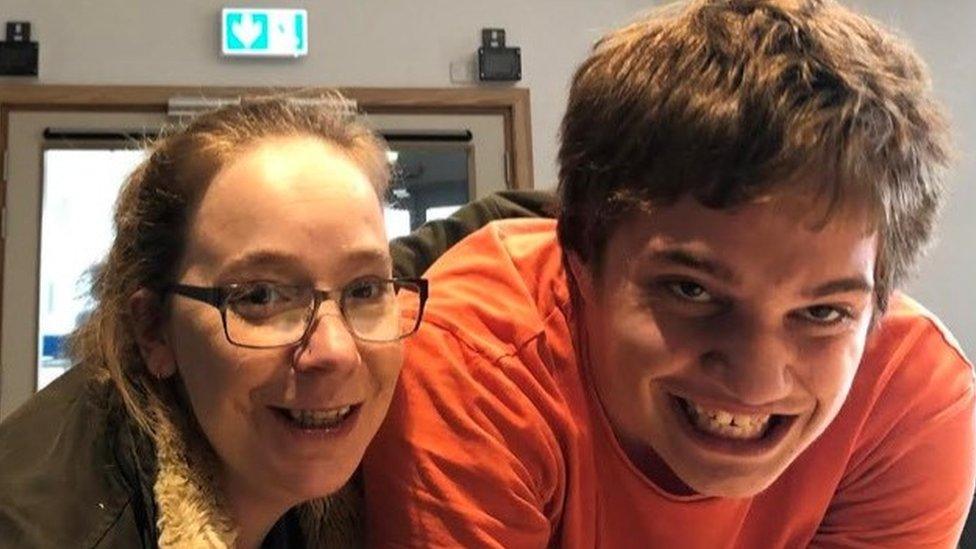Covid: 'Not seeing my disabled son during lockdown was awful'
- Published
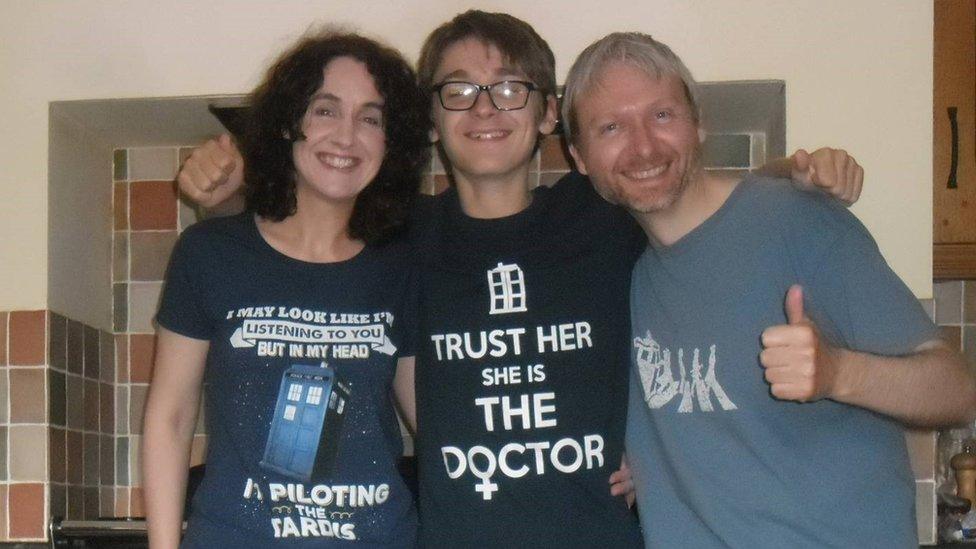
Dawn Cavanagh said lockdown had a severe impact on her disabled son's mental health
"He would sob down the phone, 'mummy come and get me'."
Dawn Cavanagh said going 15 weeks in the first lockdown without seeing her son Jack, who lives in residential care, was "awful".
The 18-year-old, who has a learning disability, epilepsy, autism and ADHD, became anxious, depressed and started to self-harm, his mum said.
Many disabled people felt "abandoned" during the pandemic, a report has found, external.
Disabled people also made up almost 70% of Covid deaths in the first few months of the outbreak in Wales.
The Welsh government has set up a taskforce to address the inequalities highlighted by the report.
However its author, Prof Debbie Foster of Cardiff University, is disappointed there will not be a Wales-specific Covid public inquiry having heard "horrific and disturbing" evidence.
Mrs Cavanagh, who lives near Haverfordwest in Pembrokeshire, was unable to visit Jack at his specialist residential service more than 100 miles away in the Vale of Glamorgan.
"It had huge implications for his mental health and wellbeing," she said.
"He would sob down the phone 'mummy come and get me, daddy come and get me'.
"And then he started to self-harm, his behaviour deteriorated, he became very anxious, very depressed. It was just awful.
"Jack was actually asking members of staff, 'Will you be my mummy? Will you be my daddy?'
"He genuinely didn't understand what was happening or where we were. It couldn't be explained to him."
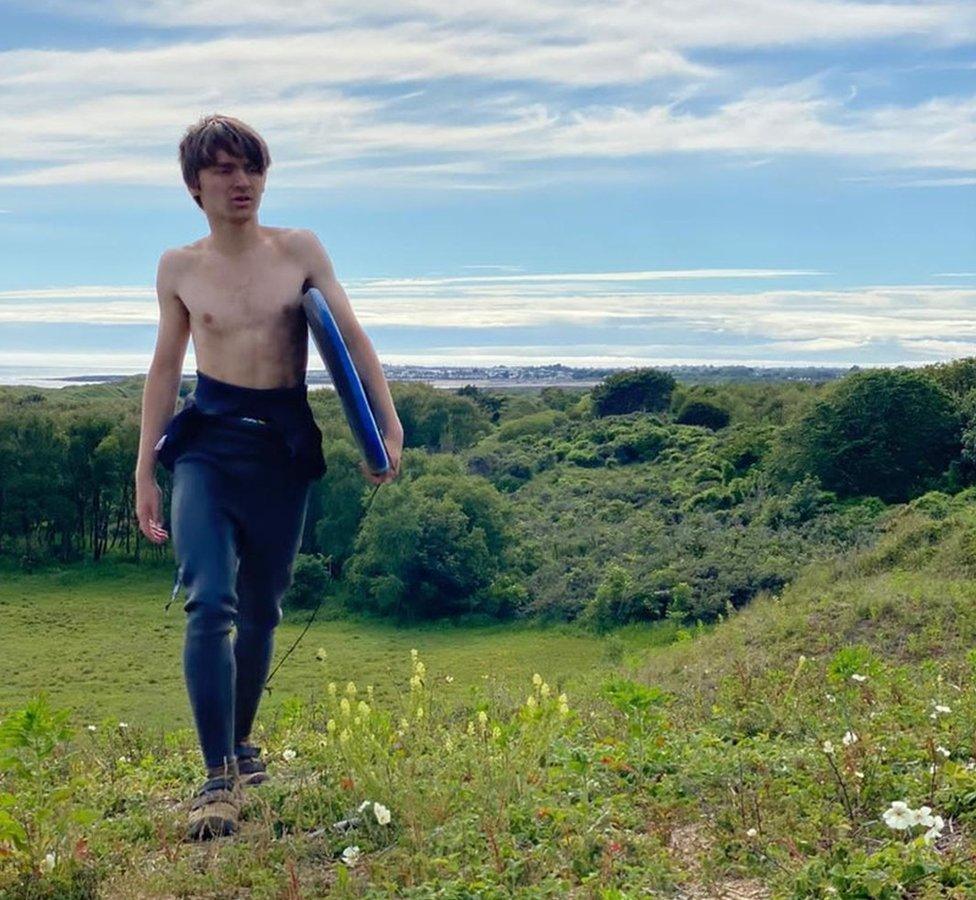
Many disabled people like Jack Cavanagh felt "abandoned" during the pandemic

Dawn believes the importance of infection control came at the cost of human rights and the balance struck by the government was not right for disabled people.
"If we're going to learn anything it's getting Welsh government [and] organisations to understand the reality of disabled people's lives and consulting with them," she said.
Prof Foster said that consultation did not happen when Covid policy decisions were made.
"Disabled people just weren't around the table, they weren't being discussed," she said.
The report found:
Discrimination, poor housing, poverty, employment status, institutionalisation, lack of PPE, poor and patchy services, inaccessible and confusing public information, "significantly contributed" to 68% of Covid deaths in Wales between March and mid-July last year being disabled people, external, compared with 59% in England
Disabled people feel their lives are "less valued" in Welsh society, and were unable to access public transport, maternity services, GP surgeries, emergency telephone helplines and vital pandemic-related public information
Many disabled people reported confusion, helplessness, abandonment, isolation, fear and frustration
Disabled people living alone and in institutions were particularly vulnerable
The "root cause" of much of the exclusion was "simple thoughtlessness", as disabled people were not consulted sufficiently on the impact Covid rules would have.
About 20% of the Welsh population are classed as disabled under the ONS's definition of someone whose daily life is limited because of poor health or disability which has lasted, or is expected to last, at least 12 months.
The report also refers to a study by Public Health Wales that found people with a learning disabilities were considerably more likely to die from Covid than others.
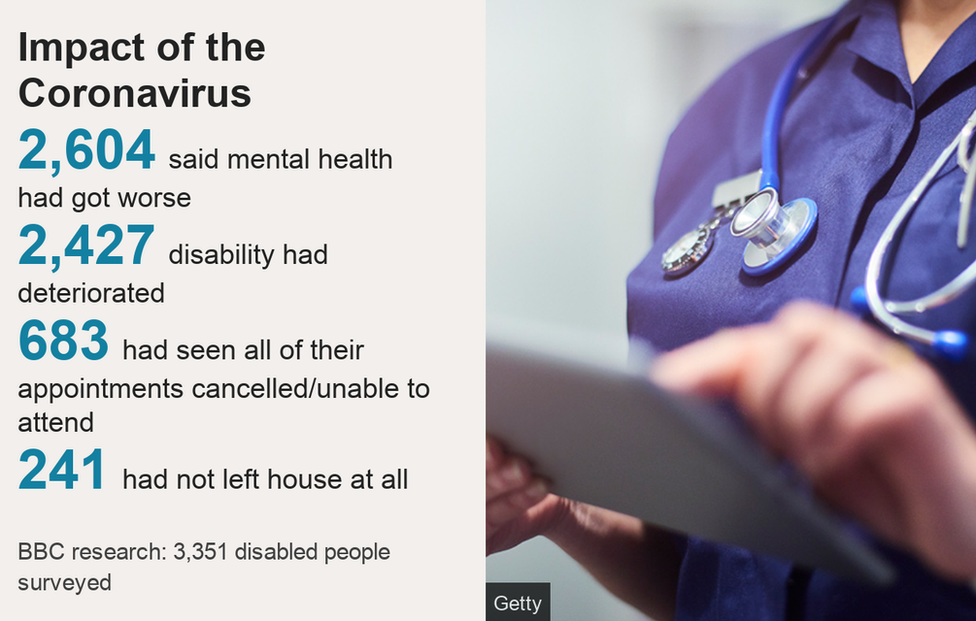

Learning Disability Wales said the report was "damning" while Prof Foster said the death statistics warranted a public inquiry in Wales.
"We've been told that because the UK is having a public inquiry they won't do a separate public inquiry," she said.
"It's a real disappointment because 68% of all deaths being attributed to disabled people is very high and it's actually a Welsh statistic, so we would have liked to seen some investigation in Wales itself."
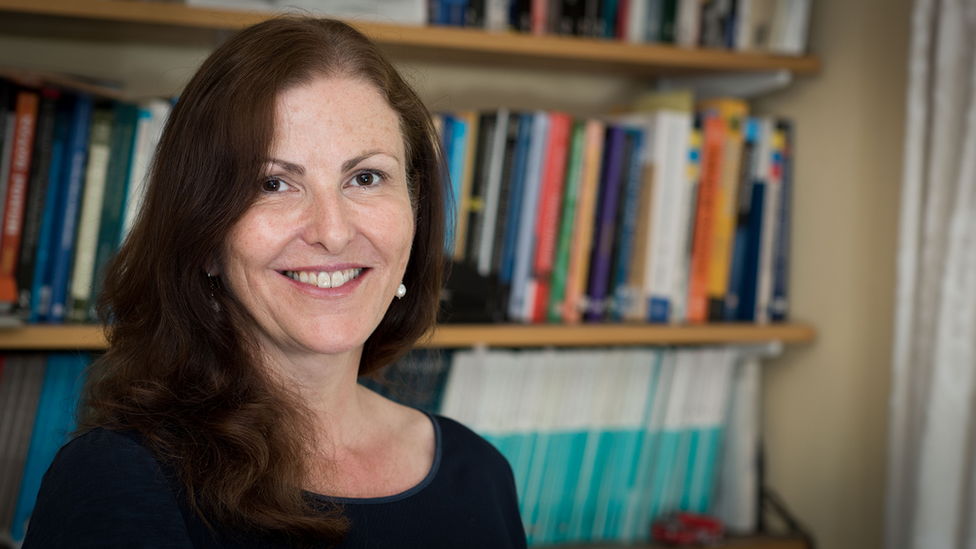
Prof Foster says the disproportionate Covid death statistics for disabled people warrants a public inquiry in Wales
Prof Foster believes many of the failings were preventable and said while the Welsh government was aware of the issues, there was an "implementation gap" with NHS Wales, local government and public services.
She added: "If there's an under representation of certain voices in policy making, then the problem is that their interests and their particular perspective is not reflected in policy and implementation of policy."
The Welsh government said it had already taken steps to look at the disproportionate impact of Covid-19 on disabled people and had put tackling inequality "at the heart" of decision making.
It has established Covid Moral and Ethical Advisory Group for Wales (CMEAG-Wales) to advise policy makers and is addressing the under-representation of disabled people in public appointments.
"We have worked with disability groups throughout the pandemic to understand the impact of coronavirus on their lives," a Welsh government spokesperson said.
"As a result, we have already taken actions to address the concerns raised in this report, including the establishment of a minister-led taskforce, which will determine how and what further action we need to take to address the inequalities faced by disabled people, many of which were exacerbated by the pandemic."


- Published10 June 2021
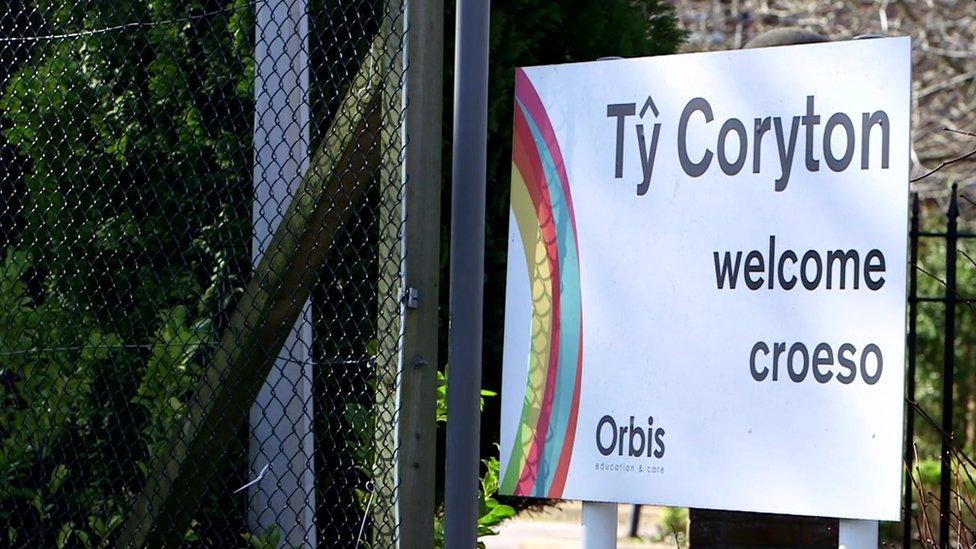
- Published22 April 2021
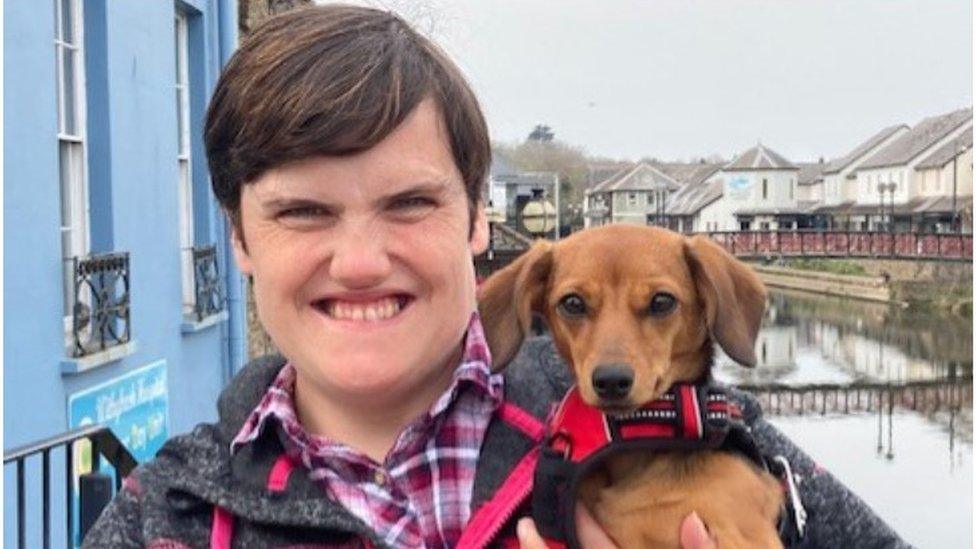
- Published11 February 2021
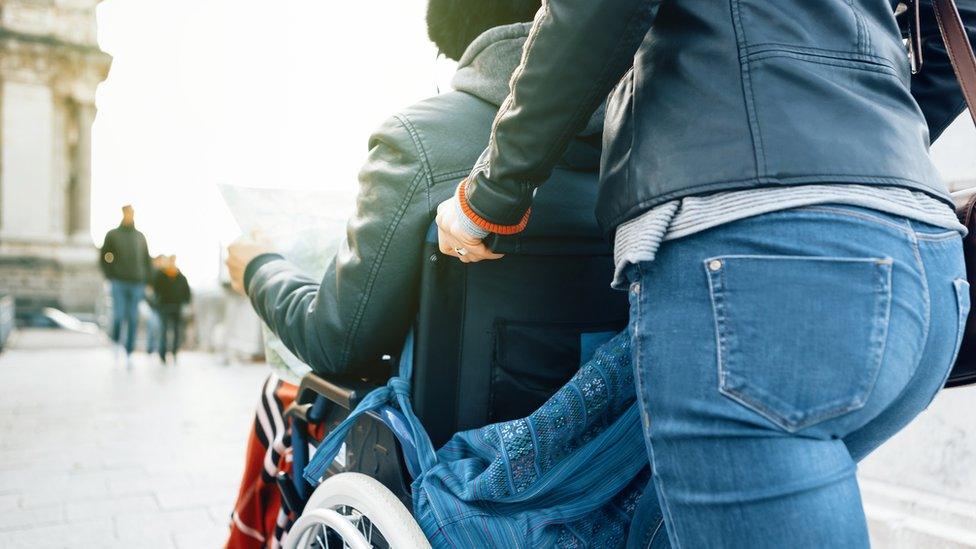
- Published13 January 2021
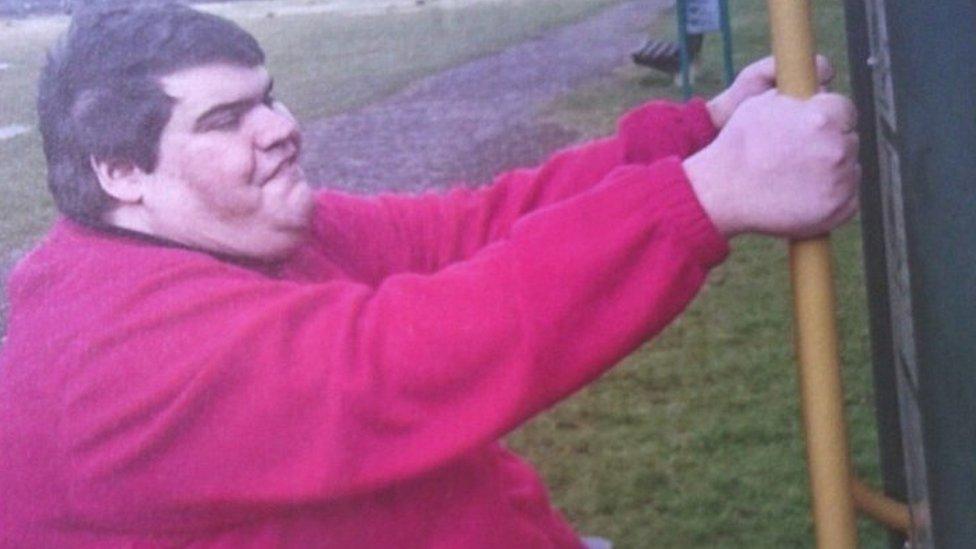
- Published8 October 2020
